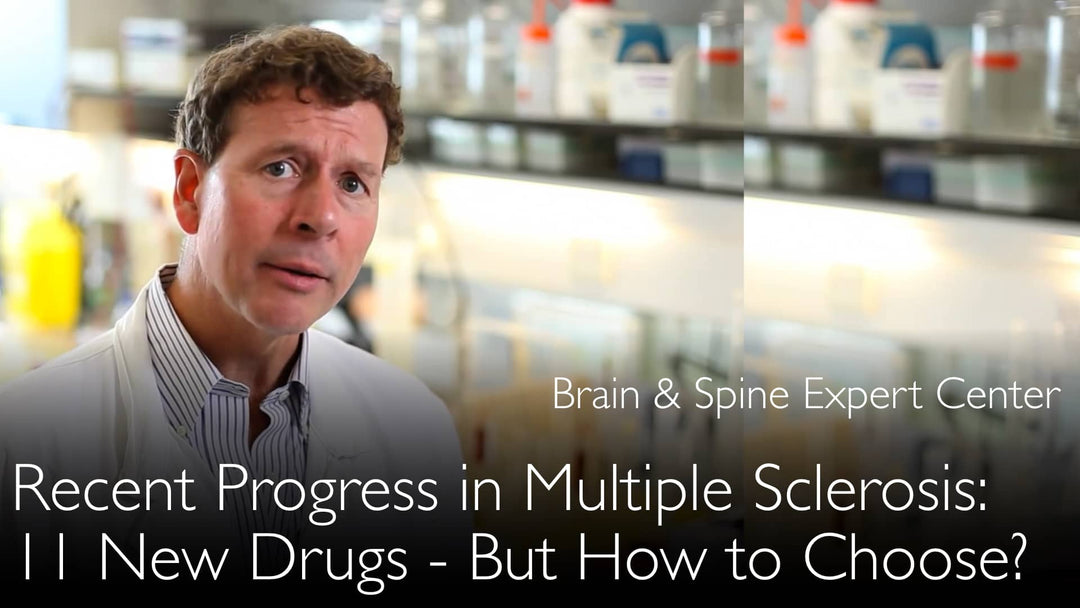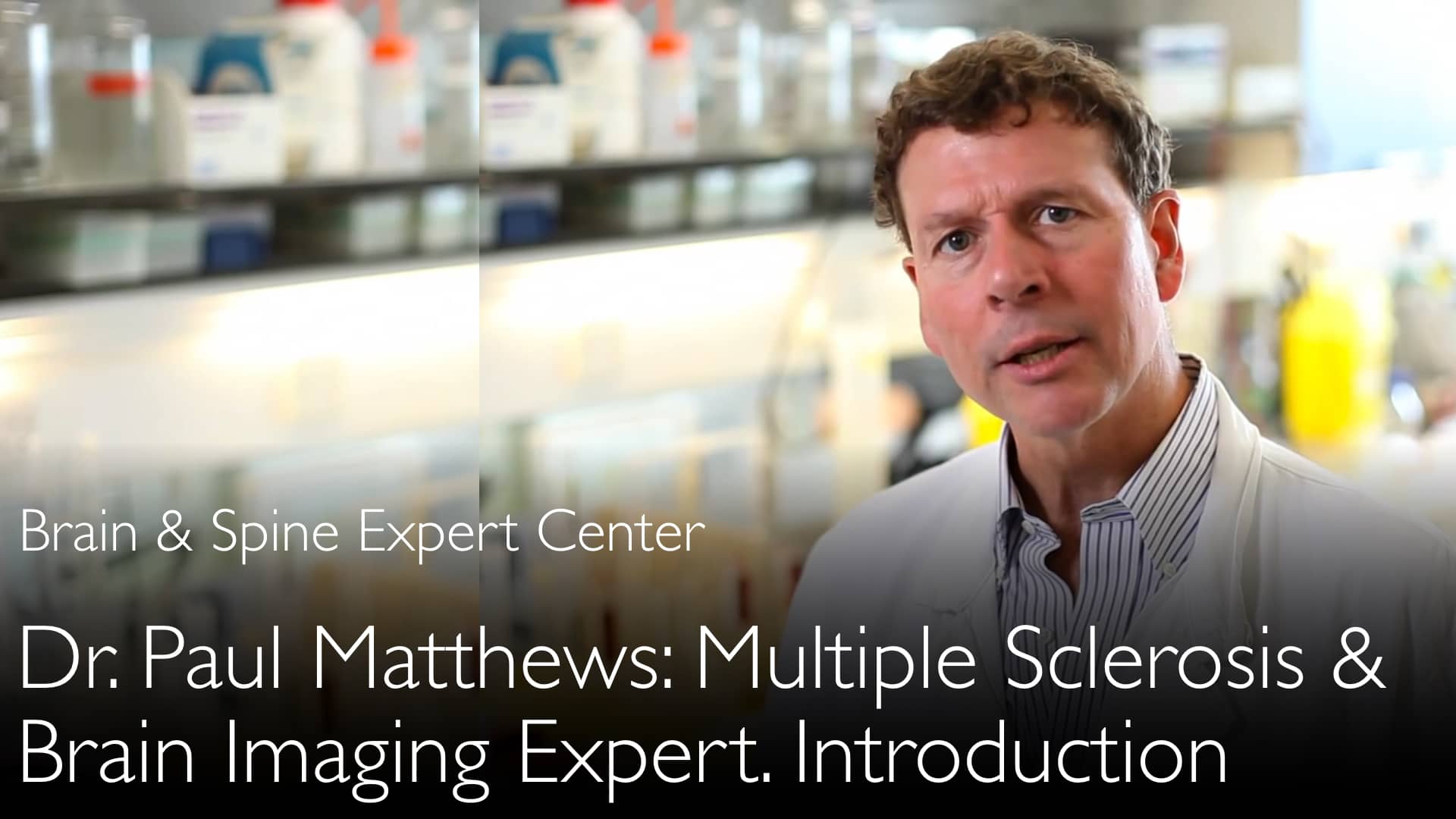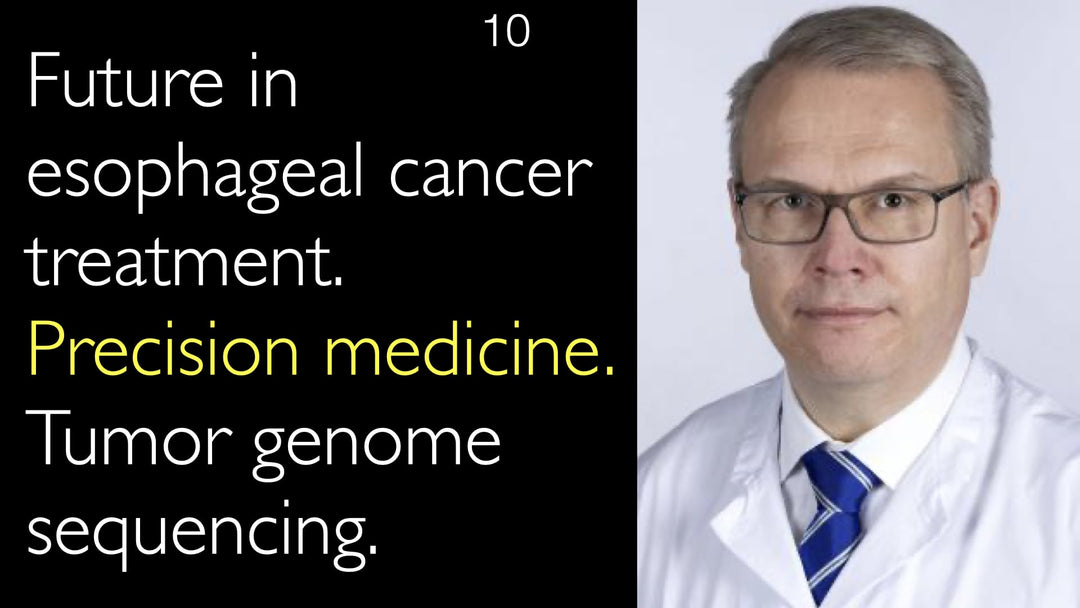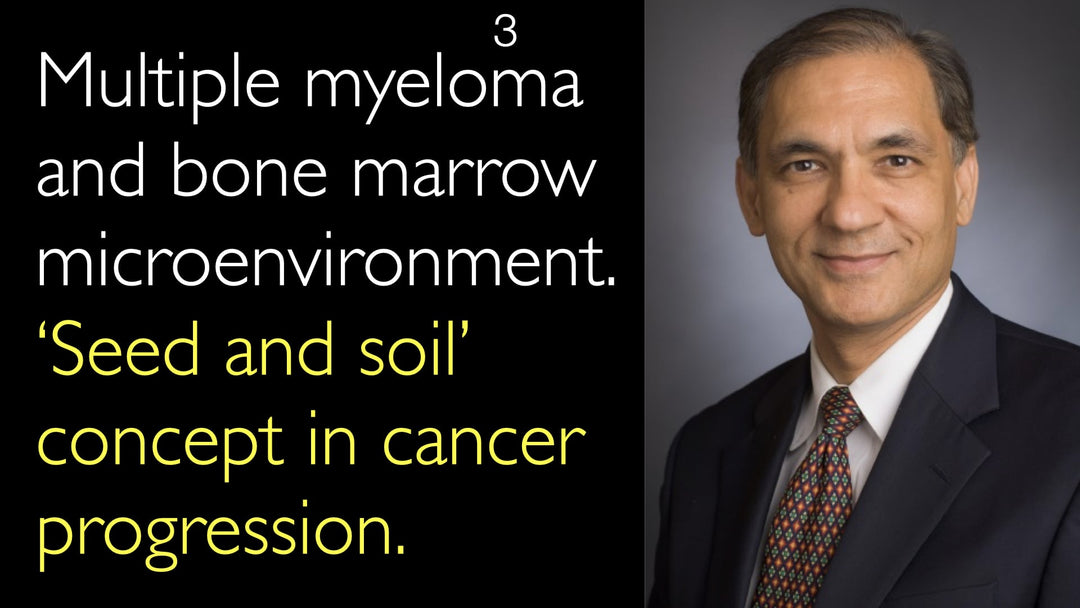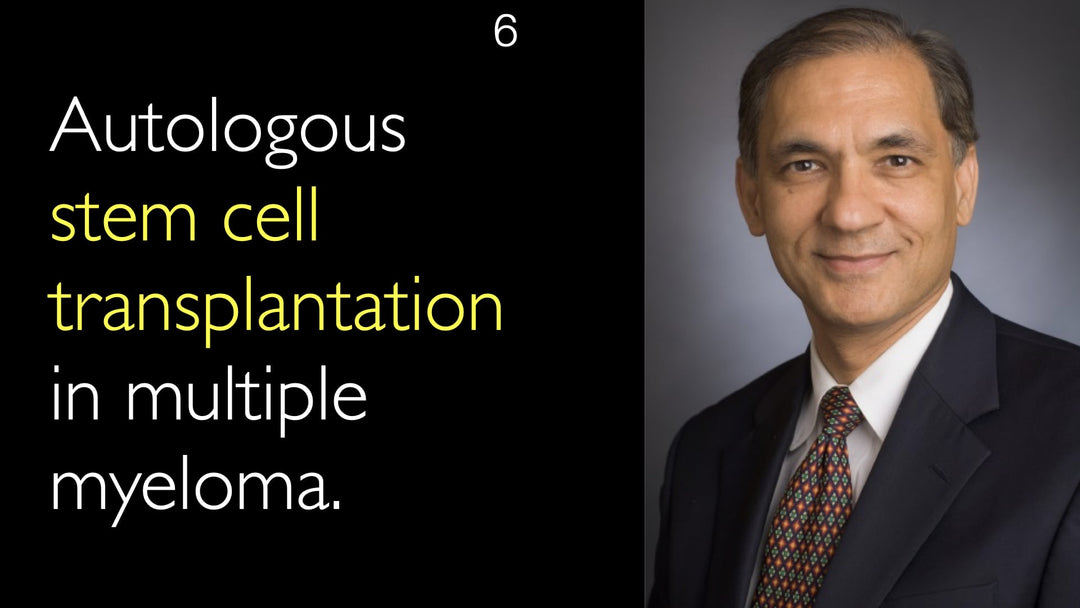O renomado especialista em esclerose múltipla, Dr. Paul Matthews, explica como a medicina personalizada está revolucionando o tratamento da doença. Ele detalha a importância da pesquisa de efetividade clínica no mundo real, destacando o esquema de compartilhamento de risco do Reino Unido e o consórcio MS Base. Essas iniciativas evidenciam os benefícios das novas medicações para esclerose múltipla. O especialista também aborda avanços promissores no tratamento das formas progressivas da doença, com novas terapias — como o Ocrelizumab e os tratamentos de remielinização — trazendo esperança aos pacientes.
Medicina Personalizada e Novos Avanços no Tratamento da Esclerose Múltipla
Navegar para a Seção
- Avanços na Medicina Personalizada
- Eficácia do Tratamento no Mundo Real
- O Esquema de Compartilhamento de Riscos do Reino Unido
- Consórcios Globais de Dados
- Terapias para EM Progressiva
- Direções Futuras do Tratamento
- Transcrição Completa
Avanços na Medicina Personalizada
O Dr. Paul Matthews, MD, discute os principais avanços na medicina personalizada para a esclerose múltipla. Ele destaca o sucesso de termos mais de 11 medicamentos diferentes disponíveis para a doença. Essa ampla gama de opções permite que neurologistas e pacientes escolham o tratamento mais adequado. O objetivo é adaptar a terapia certa a cada paciente para obter os melhores resultados.
O Dr. Paul Matthews, MD, enfatiza a importância de demonstrar benefícios claros para os pacientes com esses medicamentos de alto custo. Aprender com a experiência prática ajuda a identificar quais pacientes obtêm o maior benefício. Essa abordagem representa um avanço significativo na pesquisa de eficácia clínica para a EM.
Eficácia do Tratamento no Mundo Real
O Dr. Paul Matthews, MD, ressalta o papel crucial das evidências do mundo real no cuidado da esclerose múltipla. Neurologistas e pacientes trabalham juntos para monitorar a progressão da doença. Essa colaboração gera dados valiosos sobre como os tratamentos funcionam fora dos ensaios clínicos controlados.
A coleta padronizada de informações é fundamental nesse processo. Ela permite compreender claramente o impacto de um medicamento no dia a dia do paciente. Esses dados do mundo real são essenciais para validar a eficácia de novas terapias para a esclerose múltipla.
O Esquema de Compartilhamento de Riscos do Reino Unido
Um exemplo notável de pesquisa de eficácia é o esquema de compartilhamento de riscos do Reino Unido. O Dr. Paul Matthews, MD, explica essa iniciativa. Neurologistas de todo o país prescreveram terapias modificadoras da doença de primeira linha usando uma abordagem padronizada.
Eles registraram dados de progressão da doença em um sistema central. A Dra. Jackie Palace e colegas resumiram essas informações, demonstrando benefícios claros para os pacientes no Reino Unido. Esse esquema comprovou que esses medicamentos oferecem valor significativo na prática clínica real.
Consórcios Globais de Dados
O Dr. Paul Matthews, MD, cita o consórcio MS Base como um novo modelo de coleta de dados. Esse esforço global envolve a agregação voluntária de dados de neurologistas ao redor do mundo. O consórcio já começou a publicar pesquisas sobre a eficácia dos medicamentos.
Esses estudos fornecem informações cruciais sobre a eficácia relativa de diferentes tratamentos para a esclerose múltipla. Também ajudam a identificar sequências de tratamento potencialmente ideais para os pacientes. Essa colaboração global está acelerando o progresso no cuidado personalizado da EM.
Terapias para EM Progressiva
Houve uma grande mudança no foco do tratamento para a esclerose múltipla progressiva. O Dr. Paul Matthews, MD, descreve isso como um desenvolvimento crítico. O cenário terapêutico evoluiu além do manejo apenas das formas remitente-recorrentes.
Ele destaca resultados promissores de ensaios clínicos de Fase 2 para terapia de remielinização. Os primeiros relatos sobre o Ocrelizumabe (Ocrevus) mostram eficácia na EM progressiva. Diversos outros ensaios clínicos estão em andamento, oferecendo nova esperança para pacientes com a forma progressiva da doença.
Direções Futuras do Tratamento
O Dr. Paul Matthews, MD, conclui olhando para o futuro do tratamento da esclerose múltipla. Essas dez áreas de progresso destacam uma ampla gama de desenvolvimentos. Novos medicamentos estão prestes a melhorar significativamente o prognóstico dos pacientes.
O Dr. Anton Titov, MD, concorda com essa avaliação positiva. Os avanços no tratamento da EM também indicam um caminho valioso para o tratamento de outras doenças neurológicas. As lições aprendidas com a pesquisa da esclerose múltipla terão implicações de longo alcance para a medicina.
Transcrição Completa
Dr. Anton Titov, MD: O senhor publicou uma revisão sobre avanços no diagnóstico e tratamento da esclerose múltipla. Ela foi impressa na renomada revista Nature Reviews Neurology. Sua revisão é intitulada "Década em revisão: esclerose múltipla. Novos medicamentos para esclerose múltipla. Medicina personalizada para esclerose múltipla."
Quais são os principais avanços na medicina personalizada para o tratamento da esclerose múltipla? Temos o grande sucesso de contar com 11 ou mais medicamentos para a doença no mercado atualmente.
Dr. Paul Matthews, MD: Esses novos medicamentos para esclerose múltipla oferecem aos pacientes e seus médicos uma ampla escolha de tratamentos. Todos são caros. É importante demonstrar claramente que esses medicamentos estão trazendo benefícios reais para os pacientes.
Os pacientes os utilizam na vida real. Aprendemos com esses tratamentos. Compreendemos quem está obtendo os maiores benefícios e quem pode estar se beneficiando menos.
A pesquisa de eficácia clínica na esclerose múltipla está dando grandes passos. Neurologistas e pacientes estão trabalhando juntos.
Dois grandes exemplos disso foram o sucesso do esquema de compartilhamento de riscos do Reino Unido. Neurologistas de todo o país prescrevem a primeira terapia modificadora da doença para pacientes com esclerose múltipla. Eles o fazem após coletar informações padronizadas e registrar a progressão da doença em um sistema central, seguindo essa escolha terapêutica padronizada.
A Dra. Jackie Palace e seus colegas publicaram no início do ano um resumo útil desses dados. Eles demonstraram claramente como, na prática, no Reino Unido, esses medicamentos para esclerose múltipla beneficiam os pacientes que os utilizam.
No futuro, existem novas formas de coletar dados por meio da agregação voluntária de informações de neurologistas ao redor do mundo. O consórcio MS Base exemplifica essa nova abordagem.
Especialistas começaram a publicar uma série de artigos de pesquisa. Eles demonstraram tanto a eficácia dos medicamentos quanto a capacidade de fornecer dados sobre a eficácia relativa dos tratamentos para esclerose múltipla.
Eles também indicaram sequências potencialmente ideais para o uso dos medicamentos.
Por fim, os pacientes com esclerose múltipla progressiva têm motivos para otimismo. Na última década, passamos de uma época em que o tratamento era voltado apenas para a forma remitente-recorrente. Agora, o foco está amplamente no controle ou na interrupção da progressão da esclerose múltipla.
Os primeiros resultados de ensaios clínicos de Fase 2 para terapia de remielinização são promissores. Os primeiros relatos sobre o Ocrelizumabe foram apresentados. O Ocrelizumabe (Ocrevus) mostrou eficácia na esclerose múltipla progressiva.
Há também muitos outros ensaios clínicos em andamento para a esclerose múltipla progressiva. Acho que essas dez áreas de progresso no tratamento da esclerose múltipla realmente destacam uma enorme gama de desenvolvimentos.
Novos medicamentos melhorarão o prognóstico dos pacientes com esclerose múltipla. Também nos indicarão como podemos tratar outras doenças no futuro.
Dr. Anton Titov, MD: Com certeza. Obrigado! Esta é uma excelente revisão dos principais avanços no tratamento da esclerose múltipla.


